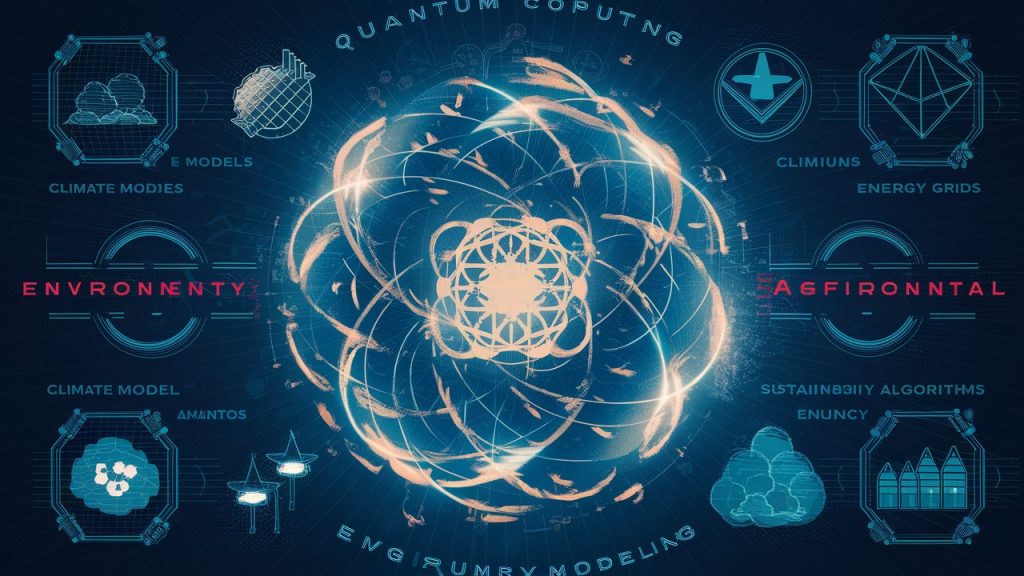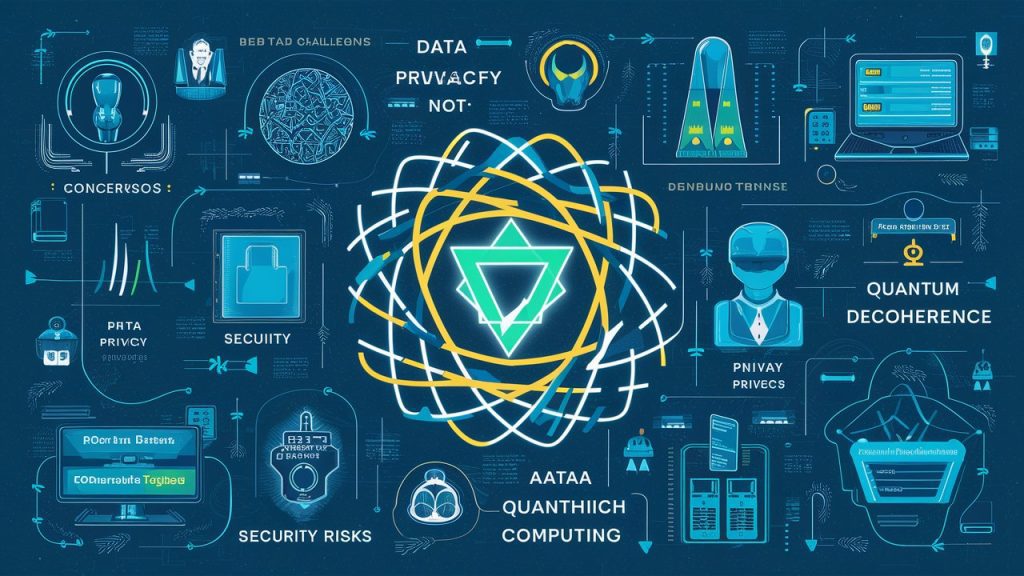Quantum computing represents a paradigm shift in computational power and problem-solving capabilities. By leveraging the principles of quantum mechanics, quantum computers can solve complex problems that are currently intractable for classical computers. Here, we explore the future of quantum computing, its applications and implications. Also Explore more about our company on [our homepage].
Advanced Cryptography

Quantum Cryptography
Quantum computers have the potential to break current cryptographic systems, such as RSA and ECC, by efficiently solving problems like integer factorization and discrete logarithms, which are the foundation of these encryption methods.
Example: Shor’s Algorithm: Developed by mathematician Peter Shor, this quantum algorithm can factorize large numbers exponentially faster than the best-known classical algorithms, posing a threat to current cryptographic techniques.
Quantum-Resistant Algorithms
In response to the potential threat, researchers are developing quantum-resistant cryptographic algorithms, also known as post-quantum cryptography, to secure data against quantum attacks.
Example: Lattice-Based Cryptography: One of the promising approaches to post-quantum cryptography, using lattice structures to create secure encryption methods that are believed to be resistant to quantum attacks.
Drug Discovery and Molecular Modeling

Accelerated Drug Discovery
Quantum computing can significantly speed up the process of drug discovery by simulating molecular structures and interactions at an unprecedented scale and accuracy, leading to faster identification of potential drugs.
Example: Molecular Simulation: Quantum computers can model complex molecules and chemical reactions more accurately than classical computers, facilitating the discovery of new drugs and materials.
Protein Folding
Understanding protein folding is crucial for developing treatments for various diseases. Quantum computing can help simulate the folding processes of proteins, leading to breakthroughs in understanding diseases like Alzheimer’s and Parkinson’s.
Example: IBM Q System One: IBM’s quantum computer has been used to explore protein folding, showcasing the potential of quantum computing in biomedical research. Dive deeper into our [blog posts] for in-depth insights and examples.
Optimization Problems

Logistics and Supply Chain Optimization
From The Part of The Future of Quantum Computing, The Quantum computers can solve complex optimization problems more efficiently than classical computers, leading to significant improvements in logistics, supply chain management, and scheduling.
Example: D-Wave Systems: D-Wave’s quantum computers are already being used to optimize traffic flow, warehouse operations, and other logistics problems.
Financial Modeling
Quantum computing can enhance financial modeling by optimizing portfolios, managing risk, and improving the accuracy of predictive models, thereby revolutionizing the finance industry.
Example: Quantum Annealing: Used by companies like D-Wave to solve optimization problems in finance, such as portfolio optimization and risk assessment. Dive deeper into our [blog posts] for in-depth insights and examples.
Artificial Intelligence and Machine Learning

Enhanced Machine Learning
Quantum computing can accelerate machine learning algorithms, allowing for faster training of models and more efficient processing of large datasets. This can lead to significant advancements in AI applications.
Example: Quantum Neural Networks: Research is being conducted on integrating quantum computing with neural networks to improve the efficiency and performance of AI models.
Pattern Recognition
Quantum computers can enhance pattern recognition capabilities, improving applications in image and speech recognition, natural language processing, and other AI-driven fields.
Example: Google’s Quantum AI Lab: Google is exploring the use of quantum computing for various AI applications, including pattern recognition and optimization problems. Discover our full range of [services] to see how we can bring your app vision to life.
Environmental Modeling

Climate Modeling
From the The Future of Quantum Computing, The Quantum computing can improve climate modeling by processing vast amounts of environmental data more efficiently, leading to better predictions and understanding of climate change.
Example: Earth System Modeling: Quantum computers can simulate complex climate systems, helping scientists to predict climate changes and develop strategies to mitigate their impact.
Energy Optimization
Quantum computing can optimize energy grids, leading to more efficient energy production and distribution, reducing waste, and enhancing the sustainability of energy systems.
Example: Smart Grids: Quantum algorithms can optimize the management of smart grids, improving energy efficiency and reducing costs. Discover our full range of [services] to see how we can bring your app vision to life.
Implications and Challenges

Ethical and Security Concerns
The development of quantum computing raises ethical and security concerns, particularly related to data privacy and the potential misuse of quantum technology.
Example: Data Privacy: The ability of quantum computers to break existing cryptographic systems poses significant risks to data privacy and security.
Technological Hurdles
Despite its potential, quantum computing faces significant technological challenges, including error rates, qubit stability, and the need for extremely low temperatures.
Example: Quantum Decoherence: Maintaining qubit coherence is a major challenge, as qubits are highly susceptible to environmental disturbances.
Conclusion
Quantum computing holds immense potential to transform various industries by solving problems that are currently intractable for classical computers. From cryptography and drug discovery to optimization and AI, the applications of quantum computing are vast and impactful. However, navigating the ethical, security, and technological challenges is crucial to realizing its full potential and ensuring that it benefits society as a whole. [Contact us] today and let’s discuss your project in detail. [Contact us] today and let’s discuss your project in detail.

